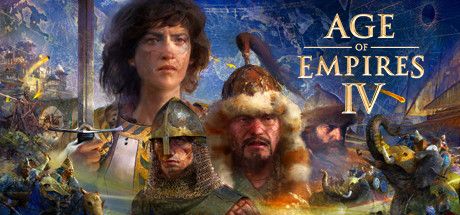Warcraft 3 was made by like 30 people.
Nobody in this thread can tell me "increased complexity of games" is the reason game budgets are inflated. Warcraft 3 is still a more complex game than 99% of what is getting played nowadays and in fact there are massive industries selling simplified games derived from the Warcraft 3 gameplay loop, like MOBAs and Tower Defense.
The
only thing that is outdated about Warcraft 3 is the graphics. Are you telling me a game that took 30 people like 3-4 years to make now takes 10 years and 100+ people? How does that make any sense?
Even if public corporations like Blizzard want bigger and bigger profits and aren't interested in games like Warcraft 3, why are there absolute no indie games of comparable quality? It's been over 20 years.
Compare the credits for Warcraft 3 and Age of Empires 4.
The credits listed below are from pages 152 and 153 of the Warcraft III: Reign of Chaos Game Manual book and pages 21 and 22 of the Warcraft III: The Frozen Throne Game Manual book.

wowpedia.fandom.com
The official game credits for Age of Empires IV released on Windows in 2021. The credits include 1,653 people.

www.mobygames.com
Warcraft 3 has ONE producer. Age of Empires 4 has FIFTEEN.
Look at how many people are in Age of Empires 4's "core technology engineering team." It has multiplicatively more people than the entire programming staff for Warcraft 3. Is AOE 4's game engine better than Warcraft 3's? Does anyone actually believe that? Count in all the people on "core gameplay" and all these other layered functions and you have a staff 5-10x as large to make a game that is
LITERALLY NO BETTER than its predecessor. WHY?
I agree with most of your point, but leave out "better", this is a subjective opinion and lets reframe on trying to force that.
You make great points about how many worked on each game and how many are in the engineering team etc. This shows that gaming has gotten much more complex (if the game ends up better in anyone's opinion should not be factored here as just for bullshits sake, I can argue Pong is better and act as if all of gaming isn't needed or something, I don't wish for this to turn into that)
Factually, it takes more to put out games today, then 22 years ago.
Even if that same amount of people wanted to make such a game today, to today's current standards, it would not only take longer to create, they would likely need to charge more or something to even make the return. So much more things are complicated today with creating a game then back then.
So I'm sure 30 people today can make some Warcraft type game, but it will greatly lack a fuck ton of features we see to day as normal, expected, standard etc.
Keep in mind, even if someone wanted to make an argument that the teams are too big, don't you think if this was true publishers would be looking to shrink those teams to oblivion? Like Naughty Dog during 2002 was like 50 or so people, but clearly what it took to make those games then, is not what it takes today.
Over 2000 plus was needed to create The Last Of Us 2.
Look at Cyberpunk, over 1000 worked on it and for such a open world game, that number is pretty low when RDR2 had over 2000 plus
Yet one of theses games launched with no Ai using vehicles in combat, removed MP support, no train station and 3 years to even include some of that post launch
My point is, if team size was really like TOO BIG, clearly we'd see this not effect some of those titles, but clearly we see such large AAA titles require a lot involved to get all of those systems working correctly, I don't see it as something that can be cheaped out on or short cuts taken or something silly like this.








